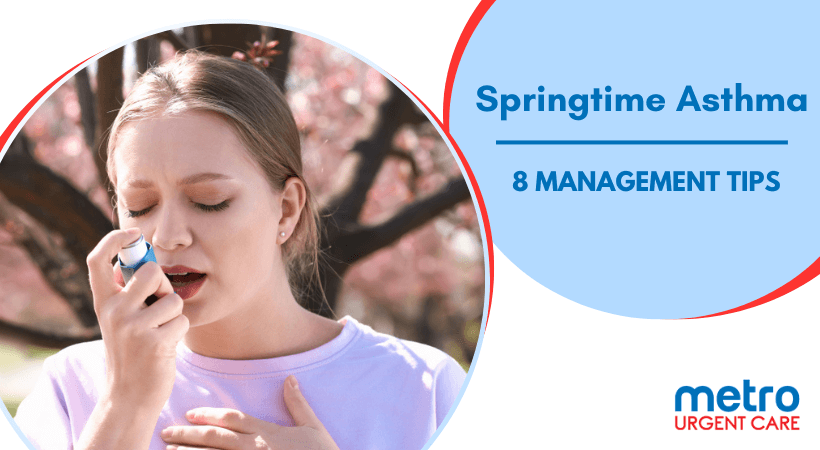


Who doesn’t love the warm days and colorful blooms of Spring? For many people, the exciting season has some downsides as well. While the grass, trees, flowers, and weeds find new life in spring, there is a consequential abundance of pollen in the air. Pollen triggers the worst allergies in countless individuals bringing on persistent sneezing, coughs, and sniffles. For people with allergic asthma, the season may also flare up asthmatic symptoms. But does this mean that individuals with allergic asthma are unable to enjoy the spring? Certainly not!
Here is your guide to spring asthma and ways to manage it.
As a chronic respiratory condition, asthma causes inflammation and constriction of the airways in the lungs, making breathing difficult.
Just as allergies can be triggered during the springtime, asthma can stem from mold spores and pollen which cause constriction in airways, thereby triggering spring asthma.
For patients with asthma, allergies are an additional trigger to breathing troubles. The allergies restrict the breathing airways, thereby triggering asthma.
The triggers for hay fever (allergic rhinitis) during spring may also set off asthma. Recent studies have found that nearly 98.9% of allergic patients with asthma also have rhinitis. This is why they are more prone to bouts of asthma during spring.
Mostly, spring asthma allergy symptoms are identical to the other kinds of triggers of asthma, which include:
Besides the symptoms listed above, patients may exhibit common allergy symptoms such as sneezing, a runny and itchy nose, and/or red, watery eyes.
Knowing the triggers of asthma is crucial to understand asthma management. While the triggers might vary from person to person, the items listed below are some of the most common triggers of allergic asthma:
There are several ways to manage asthma. If you suffer from spring asthma, here are some steps that will help you control the attacks and enjoy spring comfortably:
If you have difficulty breathing, even after taking two/three puffs of inhaler medicine every 10/15 minutes, you need immediate medical attention. Do not wait to reach out to your healthcare professional.
If you want to consult with an expert about spring asthma or are looking for the best asthma treatment options, you need not look any further than Metro Urgent Care. Our team of experienced healthcare professionals will suggest the best ways to manage your asthma during spring. For specific questions or more details on asthma treatment, feel free to contact us today.